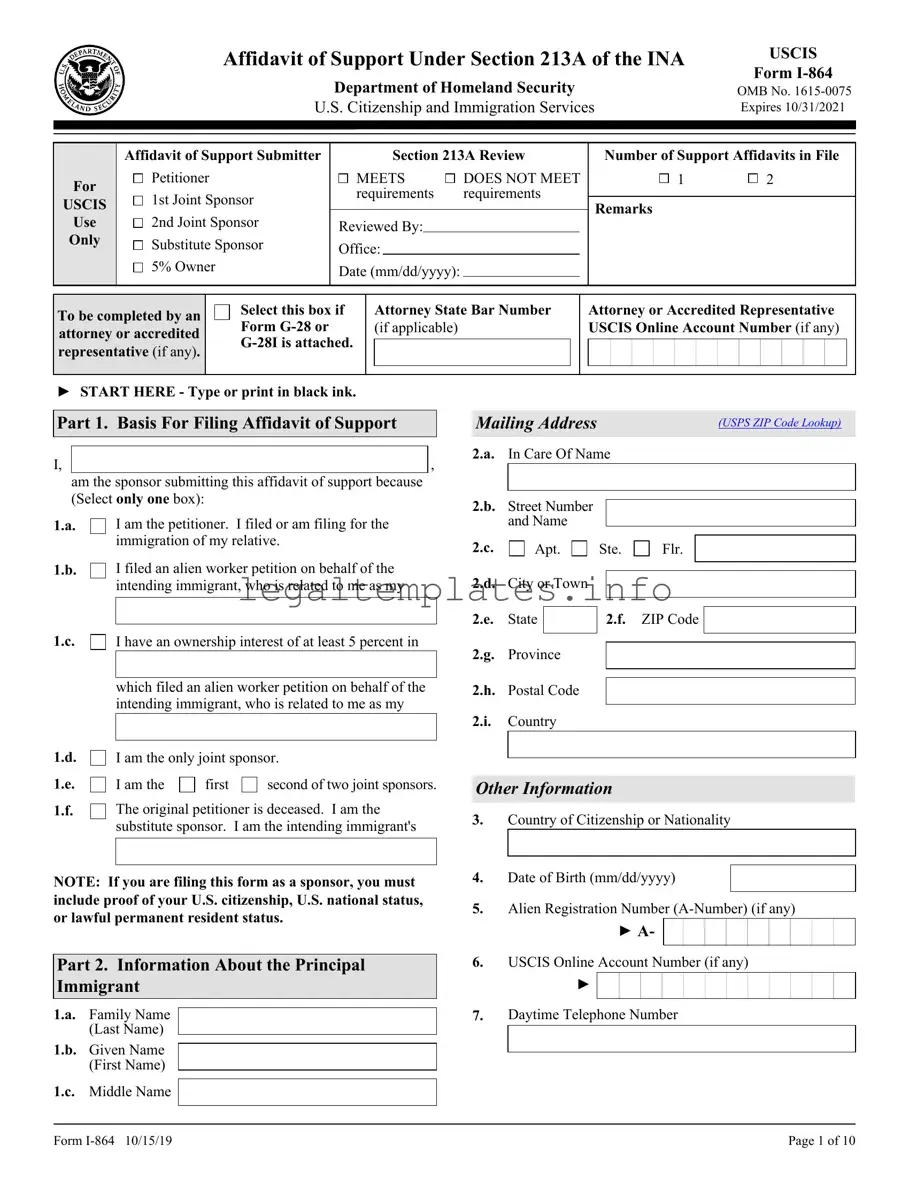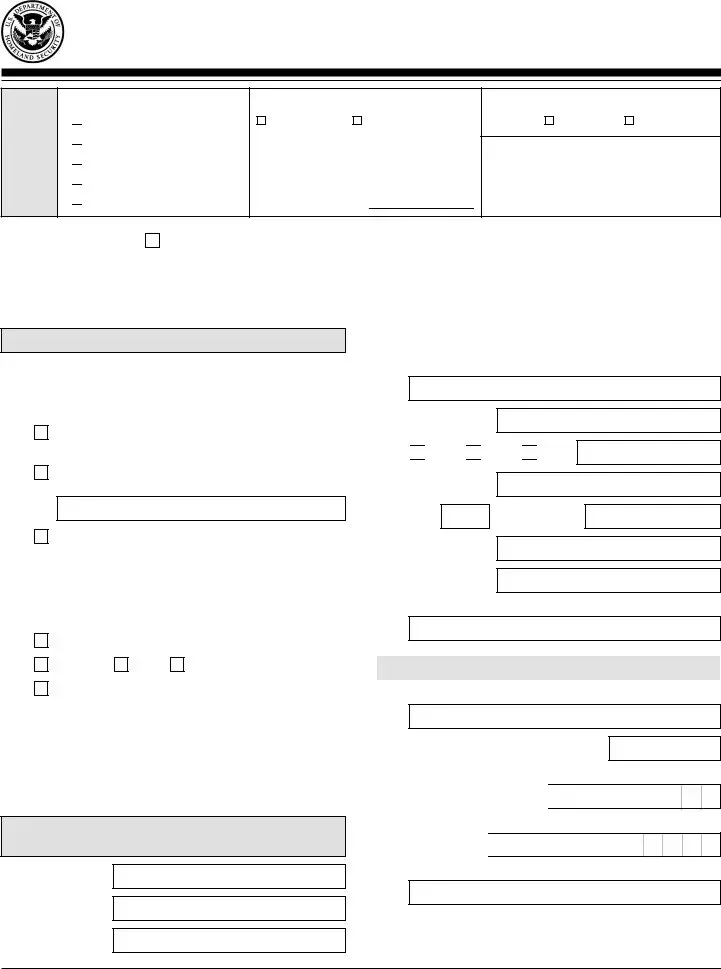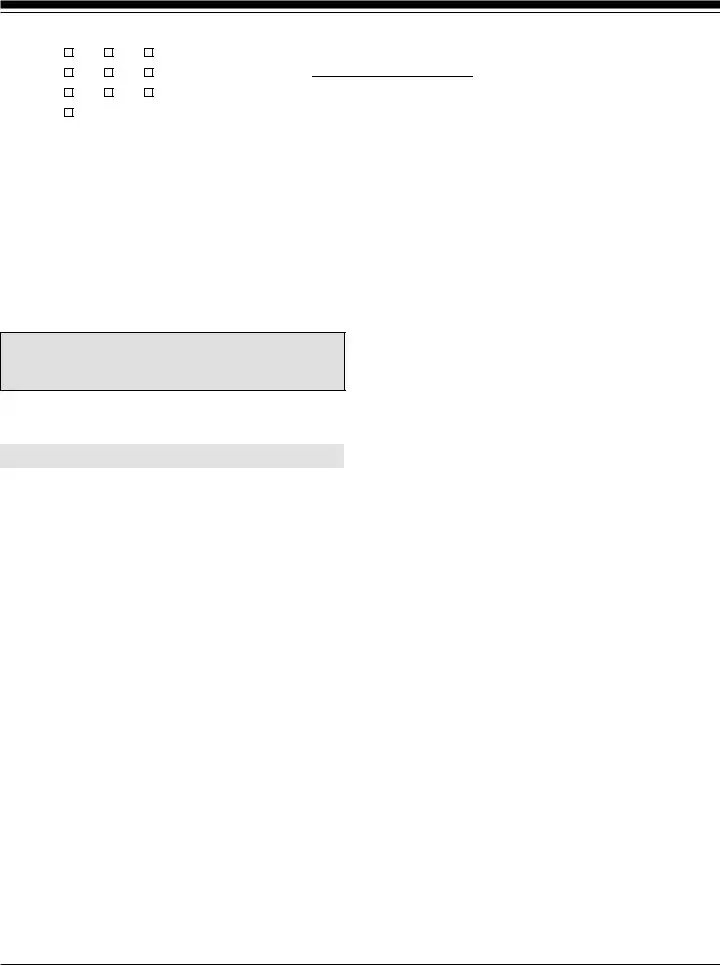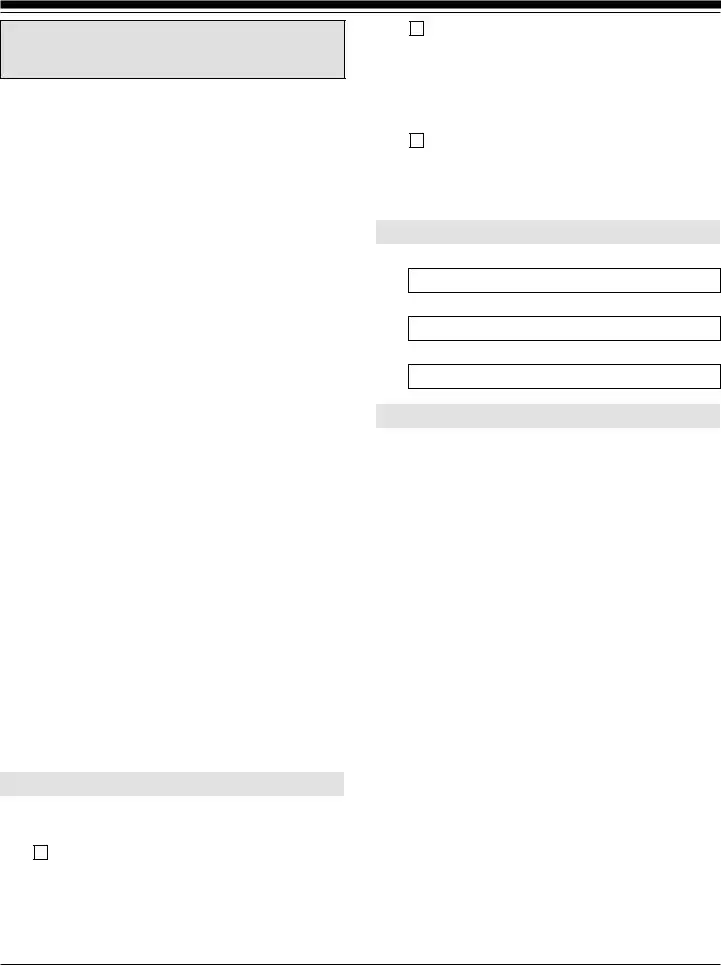The USCIS I-864 form, or Affidavit of Support, plays a crucial role in the immigration process, ensuring that immigrants have financial support in the United States. A similar document within the realm of immigration is the I-134, Affidavit of Support for non-immigrant visas. Though both serve as financial assurances, the I-134 is utilized for temporary visits, whereas the I-864 is mandatory for family-based immigrants and some employment-based immigrants to demonstrate they won’t become public charges.
Comparable to a cosigner on a loan, the Form I-864 binds the sponsor to support the immigrant financially. This mirrors the nature of a loan guarantee agreement, where a guarantor promises to take on the financial obligations of the borrower if they fail to repay the loan. Both documents create a legal obligation for someone besides the primary party to ensure financial responsibility is met.
In the business sphere, the I-864 form can be likened to a corporate guarantee, which is used when a parent company agrees to fulfill the debts of a subsidiary in case of financial difficulty. Like the I-864 requires a sponsor to cover financial shortfalls for the immigrant, a corporate guarantee ensures a subsidiary is financially backstopped by its more robust parent company, offering a safety net to creditors.
Within the immigration system itself, there’s a similarity to the DS-260, Immigrant Visa Electronic Application. Both the I-864 and DS-260 are steps in obtaining lawful permanent residency, but while the I-864 focuses on financial support, the DS-260 collects biographic details to process an individual’s visa application. They are complementary pieces of the puzzle in the journey toward permanent residency.
Analogous in commitment to insurance underwriting, where an insurer assumes financial risk in exchange for premiums, the I-864 represents a sponsor's promise to financially support an immigrant, essentially ensuring the U.S. government against the potential cost of the immigrant becoming dependent on public funds. Both arrangements involve assessing and taking on financial risk with specific conditions.
In family law, a comparison can be drawn to child support agreements, which legally obligate a parent to provide financial support for their child. Similarly, the I-864 commits a sponsor to financially back an immigrant, though in this case, the relationship need not be familial. Both are legally enforceable, ensuring that the responsible party provides specified economic support.
The I-864 also shares characteristics with a maintenance agreement, commonly used in situations where one party agrees to upkeep something for another—be that property, software, or something else. In the context of the I-864, the "maintenance" is financial support, ensuring that the immigrant's basic needs are met, not unlike ensuring the operational efficiency of a piece of equipment or system through regular maintenance.
Lastly, from a contractual obligation standpoint, the I-864 is related to a binding financial agreement (BFA), often used in family law to document the division of assets and financial resources upon the breakdown of a marriage or de facto relationship. While the BFA deals with the separation of financial obligations, the I-864 form establishes a promise of financial support, showcasing how legal documents can bind individuals to financial commitments in various personal and professional contexts.




 Petitioner
Petitioner
 1st Joint Sponsor
1st Joint Sponsor
 2nd Joint Sponsor
2nd Joint Sponsor
 Substitute Sponsor
Substitute Sponsor
 5% Owner
5% Owner
 Apt.
Apt. 
 Ste.
Ste. 
 Flr.
Flr.

























 Apt.
Apt. 
 Ste.
Ste. 
 Flr.
Flr.
 Apt.
Apt. 
 Ste.
Ste. 
 Flr.
Flr.


 1
1 
 2
2  3
3
 4
4 
 5
5  6
6
 7
7 
 8
8  9
9
 Other
Other



 Apt.
Apt. 
 Ste.
Ste. 
 Flr.
Flr.

 Apt.
Apt. 
 Ste.
Ste. 
 Flr.
Flr.